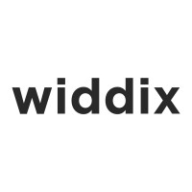

MongoDB Atlas and Widdix Amazon Web Services are competing cloud services for database management. MongoDB Atlas seems to have the upper hand in ease of use and data handling capabilities.
Features: MongoDB Atlas offers flexible schema, powerful real-time analytics features, and multi-cloud capabilities. Widdix Amazon Web Services provides seamless integration with AWS resources, enhances scalability, and effectively manages diverse workloads.
Ease of Deployment and Customer Service: MongoDB Atlas has a straightforward deployment process with automated operations. It simplifies database management, making it user-friendly. Widdix Amazon Web Services benefits from AWS's extensive service ecosystem, offering robust support but with a steeper learning curve.
Pricing and ROI: MongoDB Atlas provides flexible pricing models that facilitate cost-effective scaling, particularly appealing to small to medium businesses. Widdix Amazon Web Services aligns its pricing with AWS's framework, offering extensive service benefits but potentially higher costs.
| Product | Market Share (%) |
|---|---|
| MongoDB Atlas | 13.9% |
| Amazon RDS | 20.1% |
| Microsoft Azure SQL Database | 13.0% |
| Other | 53.0% |
| Product | Market Share (%) |
|---|---|
| Widdix Amazon Web Services | 0.1% |
| Ethereum Validator Node | 4.0% |
| Revvity Signals Synergy | 3.7% |
| Other | 92.2% |

| Company Size | Count |
|---|---|
| Small Business | 22 |
| Midsize Enterprise | 10 |
| Large Enterprise | 20 |
MongoDB Atlas stands out with its schemaless architecture, scalability, and user-friendly design. It simplifies data management with automatic scaling and seamless integration, providing dynamic solutions for diverse industries.
MongoDB Atlas offers a cloud-based platform valued for its seamless integration capabilities and high-performance data visualization. It features advanced security options such as encryption and role-based access control alongside flexible data storage and efficient indexing. Users benefit from its robust API support and the ability to manage the platform without an extensive setup process. Feedback suggests improvements are needed in usability, query performance, security options, and third-party tool compatibility. While pricing and support services could be more economical, there is a demand for enhanced real-time monitoring and comprehensive dashboards, as well as advanced containerization and scalability options supporting complex database structures.
What are the key features of MongoDB Atlas?
What benefits should you consider in a solution like MongoDB Atlas?
In healthcare and finance, MongoDB Atlas manages payment transactions and facilitates real-time analytics, powering SaaS solutions and storing large volumes of user data. It enhances scalability, performance, and security for cloud hosting, IoT integrations, and Node.js environments, widely favored for its flexibility and capability to support microservices.
We focus on modern cloud architectures: highly available, scalable, and evolutionary. An important part of this is the selection of the most suitable AWS services.
Security in the cloud is also a chief priority. Important aspects include managing access to AWS resources, network design and firewalls, and patch management.
We focus on automating infrastructure and deployments to increase velocity and reduce risk. For this purpose, we use Infrastructure as Code and Containers.
We prefer building Serverless applications. To this end, we assemble the building blocks offered by AWS. Doing so allows us to focus on the business logic.
We monitor all Database as a Service (DBaaS) reviews to prevent fraudulent reviews and keep review quality high. We do not post reviews by company employees or direct competitors. We validate each review for authenticity via cross-reference with LinkedIn, and personal follow-up with the reviewer when necessary.